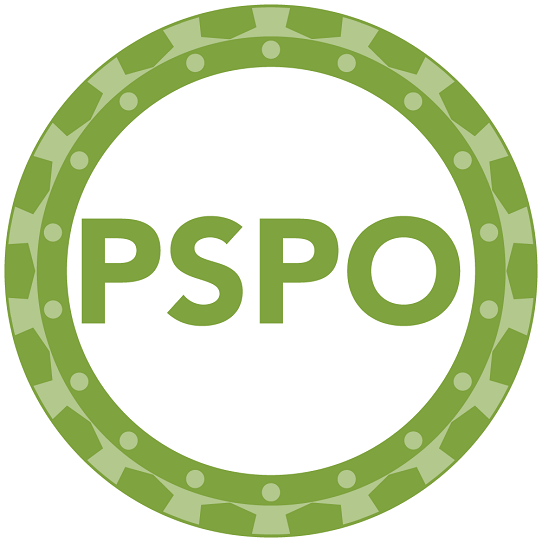Professional Scrum Product Owner (PSPO)
The 2-day course that focuses on all of these areas to teach students how to maximize the value of products and systems. PSPO is the cutting-edge course for Product Owners, Agile product managers and anyone responsible for a product’s success in the market.
What Happens On A Professional Product Owner course?
Students are challenged to think in terms of Scrum and the Scrum principles to better understand what to do when they return to their workplaces, and their specific challenges.
MECHANICS
Students will have a clear
understanding of the mechanics of Scrum and how the Product Owner role fits in
ROLE
Students can act as a Product
Owner for Scrum Teams and
stakeholders.
BUSINESS AGILITY
Students can effectively
increase the business agility
of their organization.
WHO SHOULD ATTEND?
has been specifically conceived for those responsible over Products from a business and product management
perspective and taking up the highly accountable role of Scrum Product Owner.
What is the Course About?
The Scrum.org Course Stewards explain what the course is about.
Public and Private courses available!
Assessment Certification
All participants completing the Professional Scrum Product Owner course receive a password to take the PSPO I assessment and are entitled to a discount on the PSPO II assessment. The industry-recognized PSPO certifications require a minimum passing score on these rigorous assessments.
Course Topic
AGILE PRODUCT MANAGEMENT
Explore how Product Ownership and product development with Scrum relate to product management
VALUE-DRIVEN DEVELOPMENT
Explore how the Product Owner is known as a ‘value optimizer’; Traits and skills of a Product Owner
SCRUM PRINCIPLES & EMPRICISM
Explore Scrum Theory & Empiricism
THE SCRUM FRAMEWORK
Explore the role of the Product Owner in the Scrum framework, working with Development Teams
PRODUCT BACKLOG MANAGEMENT
Explore the importance of the Product Backlog and it’s core function – How the Product Backlog is all you need for planning, reporting and forecasting
RELEASE MANAGEMENT
Explore How and when to do Release Planning; Name good reasons and not so good reasons for a release; Explain the inert complexity of formulation a release plan for major releases
Contact Us
Interested in finding out more – Lets Talk!
